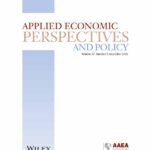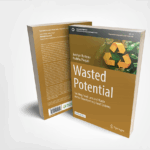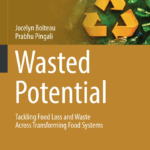Tag: Prabhu Pingali

New Report Offers First-Ever Assessment of India’s Farmer Producer Organizations
A new report from the Tata-Cornell Institute for Agriculture and Nutrition (TCI) and the Bankers Institute of Rural Development (BIRD) Lucknow provides the first comprehensive assessment of the Indian government’s push to promote farmer producer organizations (FPOs) as a means…

Researchers and Policymakers Talk Future of Climate-Smart Agriculture
India faces a difficult challenge in the near future: producing enough food to feed its growing population while reducing the stresses agriculture puts on the environment. At a policy dialogue organized by the Tata-Cornell Institute for Agriculture and Nutrition (TCI)…

Multisectoral Convergence of Food, Nutrition and Sanitation Programs for Child Health: Evidence From Country-Level Programs in India
Abstract This paper underscores the critical role of multisectoral convergence in enhancing child health, particularly in addressing anemia, a micronutrient deficiency linked to both diet and sanitation. We explore how the integration of nationwide food and nutrition programs with sanitation initiatives impacts anemia in Indian...

Interministerial Coordination Can Boost India’s Fight Against Anemia
A new Tata-Cornell Institute for Agriculture and Nutrition (TCI) study on the impact of government nutrition and sanitation programs on anemia in India underscores the importance of a systematic approach that leverages all available pathways to reducing the disease.
In…

Enhanced FPO Platform for India Launches New Business Networking Feature
The Tata-Cornell Institute for Agriculture and Nutrition (TCI), with support from the Walmart Foundation, has enhanced the FPO Platform for India, introducing new data and features with information on nearly 45,000 farmer producer organizations (FPOs).
The new platform includes a…

The Role of Genotyping in Measuring Improved Variety Adoption and Impact: Advances, Challenges, and Policy Directions
Abstract Accurate measurement of agricultural technology adoption is critical for evaluating the effectiveness of investments in agricultural research and development. While household surveys have long served as the primary tool for tracking varietal adoption, growing evidence reveals systematic mismatches between self-reported and DNA verified varietal...

New Book Tackles Food Loss and Waste
Each year, about 32% of the food produced across the world is lost or wasted. Tackling food loss and waste has been on the global agenda for decades, with policymakers citing it as a contributing factor to issues like food…

Wasted Potential: Tackling Food Loss and Waste Across Transforming Food Systems
As the world seeks to achieve zero hunger and mitigate the environmental degradation tied to food production and consumption, reducing food loss and waste is a critical challenge for policymakers in developed and developing countries alike. Wasted Potential: Tackling Food Loss and Waste Across Transforming...

In Bihar, TCI Presents a Path for Productive, Climate-Smart Agriculture
The Tata-Cornell Institute for Agriculture and Nutrition (TCI) unveiled evidence for three pathways to make agriculture in Bihar more productive and environmentally sustainable at an event in Patna on October 16. The event was attended by government officials, researchers and…

Conflicting Societal Goals and the Sustainability Challenge: Eliminating Hunger Versus Climate Action
As a global society, we have historically pursued large, collective goals—to end hunger, to stop war, to halt climate change. The United Nations (UN) has played a major role in global goal setting, beginning with the Millennium Development Goals and…

